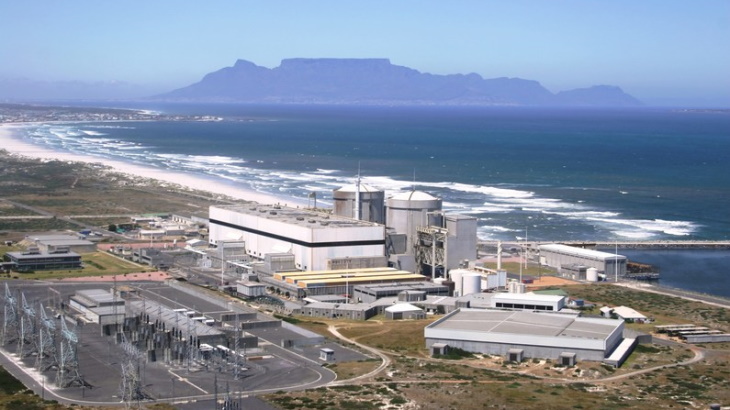
TVEL, announcing the MoU, said "both companies aim to combine existing competencies in this area and further interaction to develop relevant capabilities".
Necsa Director General Loyiso Tyabashe said the MoU aims to see Necsa and TVEL - which is Rosatom's fuel company - strengthening bilateral cooperation: "This is especially important for South Africa, as it opens up the possibility of recreating the production capacity for the manufacture and supply of nuclear fuel. I am confident that this cooperation will expand the technological capabilities of both parties and strengthen the long-term mutually beneficial partnership in the field of nuclear technology."
TVEL's senior vice president for commerce and international business, Oleg Grigoriev, said: "Necsa is one of the most experienced companies in the global nuclear industry with a wide range of competencies. We are convinced that our cooperation with such a respected partner will make a significant contribution to increasing the sustainability of global nuclear generation."
The agreement was signed ahead of South Africa hosting the BRICS summit later this month. BRICS is described as a "partnership of five leading emerging markets and developing countries" - Brazil, Russia, India, China and South Africa. Reuters reported recently that more than 40 other countries had expressed an interest in joining BRICS. And according to TVEL: "The signing of the memorandum is a step towards increasing the sustainability of nuclear generation in the BRICS countries."
TVEL is a long-standing manufacturer of nuclear fuel for Russian-designed VVER reactors and has also developed fuel for Western-designed pressurised water reactors. Necsa is described as "a state-owned company responsible for the management of radiation sources, including uranium enrichment, as well as research in the fields of nuclear power and radiology. It cooperates locally and internationally with other organisations on nuclear and related issues to promote the social and economic development of South Africa".
South Africa has had an operating nuclear power plant, Koeberg, since 1984 with two reactors generating 5% of its electricity and the country has had plans to build 1 GW of new nuclear capacity by 2030, as well as extending the operating lifetime of its existing plant by 20 years.
According to World Nuclear Association, Koeberg's operator Eskom procures conversion, enrichment and fuel fabrication services on world markets with nearly half of its enrichment from Tenex, in Russia: "However, historically South Africa has sought self-sufficiency in its fuel cycle ... initial feasibility studies on the re-establishment of nuclear fuel cycle programmes were completed in 2011 ... Necsa proposed to establish fuel fabrication capacity for PWRs 'to ensure eventual security of fuel supply for South Africa'."